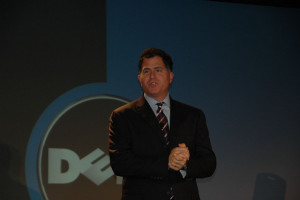By Peter Ward October 9, 2015
Trans Pacific Deal Inked
Trade negotiators on Monday inked the Trans-Pacific Partnership, a deal to link the economies of 11 Pacific Rim countries and the U.S.
The details of the final deal have not yet been made public, but in the broadest of terms, it aims to reduce trade barriers such as tariffs between member countries and adds intellectual property protections for certain products, such as pharmaceuticals. It does not include rules on currency manipulation, which was one major point of debate.
The issue of legal protections for the pharmaceutical industry was the most contentious point in the negotiations. U.S. drug companies wanted to ensure that the new deal would limit competition and increase drug prices, but other countries argued that this would cost thousands of lives. In the end, a compromise was met.
The deal will now move to U.S. Congress, where it must be approved. TPP has already been met with opposition from many corners. Democratic Presidential candidates Bernie Sanders and Hillary Clinton have both opposed the deal. Sanders said the deal was a victory for Wall Street and big corporations, while Clinton, who had previously endorsed the deal, objected to the terms given to pharmaceutical companies and the lack of currency manipulation rules. Economists cited by The Atlantic claim the deal will have a negative effect on the U.S. manufacturing sector.
A group of economists, including Alan Greenspan and Ben Bernanke, wrote a letter to Congress arguing that the deal will allow U.S. businesses to sell more in overseas markets and give U.S. consumers access to more affordable goods.
Deutsche Bank Logged $7bn Loss
Deutsche Bank, Germany’s largest bank, shocked analysts on Wednesday night when it announced expected losses of $7 billion for the third quarter of 2015.
The bank had been forecast to report a profit for the quarter, but decided to write down 5.8 billion euros of goodwill and other intangible assets, while doubling its litigation charges for the year.
The write down is related to a decline in the value of the firm’s investment bank, which it attributed to higher capital requirements legislated under Dodd-Frank, and adjustments to the expected sale price of its Postbank retail banking division, for which the bank is still seeking a buyer. Frankfurt-based Deutsche is also taking a 600 million euro writedown on the value of its stake in China’s Hua Xia Bank. The bank is looking to offload its 20% stake in Hua Xia, acquired in 2005.
Deutsche Bank is setting aside 1.2 billion euro for litigation costs. The firm has been caught up in the Libor rate-rigging scandal, and also faces investigation in Switzerland for price fixing in the precious metals markets.
Investors appear satisfied that the news represents the start of a clean-up at the bank, which some say has been overvalued for years. Shares in Deutsche Bank initially fell as much as 3.6%, before recovering the losses.
CEO John Cryan, who was hired as CEO in July, has previously hinted that he might cut bankers’ bonuses and either reduce or scrap dividend payments to shareholders.
Dell in EMC Merger Talks
Dell, the world’s third largest computer maker, is in talks to buy data storage company EMC, in what would be one of the biggest technology deals ever, Reuters reported on Thursday.

Michael Dell, founder of Dell Computer. ©Dan Farber
EMC has a market value of around $50 billion, meaning any deal would eclipse Avago Technologies’ $37 billion offer for Broadcom.
EMC is currently under pressure from activist investor Elliott Management Corp., to spin off its majority-owned VMware. Elliot agreed in January to refrain from agitating against the EMC board for eight months, as it campaigns for the breakup of the company. A merger with Dell could prove enticing to EMC amid such pressure.
Dell was taken private two years ago by founder Michael Dell and private equity firm Silver Lake for $24.9 billion. Dell has since been trying to transform the company from a PC-maker to a more rounded provider of enterprise computing services.
Neither Dell nor EMC made any comment on the reports, but shares of EMC were up 6% on Thursday morning after Reuters and the Wall Street Journal both ran stories on the talks.
Fiat Chrysler Averts Strike

The iconic Chrysler tower in New York City. ©Shawn Hoke
Auto maker Fiat Chrysler and The United Automobile Workers announced on Thursday they had reached an agreement on a new contract, averting a potential strike.
The deal is still subject to approval from 36,000 hourly workers and 4,000 salaried union members, who will vote on the agreement. A vote will be scheduled on Friday when the deal is presented to workers.
“We’ve reached a proposed tentative agreement that I believe addresses our members’ principal concerns about their jobs and their futures,” the union’s president Dennis Williams said in a statement. “We have made real gains, and I look forward to a full discussion of the terms with our membership.”
Workers had been preparing for a strike against Fiat Chrysler, the smallest of the three Detroit automakers. One of the main areas of dispute during negotiations was reportedly a proposed cap on the number of low-paid factory workers. More than 40% of the company’s hourly workers are entry-level, and are paid $9-$12 less than veteran employees.
A tentative deal was reached last week, but was rejected in a vote as it did not include the cap on lower-paid workers or any mechanism for workers to achieve the higher-wage status.
The United Automobile Workers union previously staged strikes against General Motors and what was then the Chrysler Corporation in 2007. Chrysler went bankrupt two years later and after relying on government bailouts to survive, merged with the Italian automaker Fiat.
Data Breach: Big and Bigger

(©r2hox)
On Wednesday Quartz published an interactive article that essentially shows how little companies tend to know about how much data has been stolen when they first suffer a data breach.
Last week T-Mobile announced the records of approximately 15 million people had been stolen, in the latest of a large number of high profile data breaches in the U.S. But Quartz asks just how approximate that number is, given the history of companies announcing one number initially, then sometimes doubling or tripling that figure later on.
In 2013 Target revealed that 40 million payment details had been stolen, only to announce that a further 70 million had been affected weeks later. Adobe had similar issues. Following a 2013 data breach, the company said 3 million accounts had been compromised. That figure was then revised to 38 million, and further evidence of Adobe records dumped online indicated the figure was closer to 150 million.
The Quartz interactive, by Keith Collins, clearly plots the number of data records breached in five examples, against the number of days following the first announcement by the hacked company.
This entry was posted on Friday, October 9th, 2015 at 3:54 pm. It is filed under Week in Review and tagged with data breaches, Dell EMC merger, Deutsche Bank loss, Fiat Chrysler strike, Trans-Pacific Partnership. You can follow any responses to this entry through the RSS 2.0 feed.
Comments are closed.
